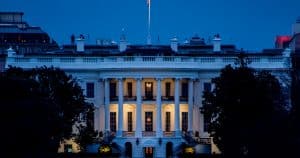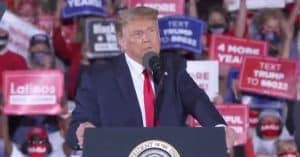Senator Joe Manchin Switches Affiliation to Independent
A longtime lawmaker has officially left the Democratic Party to become an independent.
On Friday, Sen. Joe Manchin announced his departure from the Democratic Party, choosing to register as an independent, as the Daily Caller reports.
This significant political shift comes after his decision not to seek re-election for his Senate seat, sparking discussions about his future in politics.
Manchin, 76, has been serving in the upper chamber since 2010, following his tenure as the governor of West Virginia. His political career spans several decades, during which he has remained a committed Democrat until this recent change.
Manchin's Political Journey and Recent Decisions
His announcement was made via X, the platform formerly known as Twitter, where he expressed his desire to unite the country. "My commitment to do everything I can to bring our country together has led me to register as an independent with no party affiliation," Manchin stated.
This decision aligns with key deadlines in West Virginia politics. The state mandates that individuals must register by Aug. 1 to run for political office as an independent, a deadline fast approaching for Manchin.
The move to become an independent is not without potential legal challenges. West Virginia state law prohibits the secretary of state from certifying candidates who switch parties less than 60 days before filing their candidacy.
Historical Context and Comparison to Other Politicians
Prior to his role in the Senate, Manchin served as the governor of West Virginia from 2005 to 2010. His political career was further solidified when he won a special election to fill the Senate seat left vacant by the death of Democrat Robert Byrd.
Manchin's party switch makes him the second Democratic senator to register as an independent since 2022, following Arizona's Kyrsten Sinema, who made a similar move in December of that year. His decision echoes a broader trend of party shifts in U.S. politics. Interestingly, West Virginia's current governor, Jim Justice, also switched parties, moving from Democrat to Republican in 2017, showcasing a state trend of political realignments.
Implications of Manchin's Party Change
Manchin's decision to become an independent could have significant implications for the balance of power in the Senate, where party alignment often dictates legislative agendas. His independent stance may position him as a pivotal player in future political negotiations.
While Manchin has not yet declared his intention to run for any specific office as an independent, his move comes at a strategic time, suggesting potential plans for continued involvement in national politics. Observers speculate that this change could be a prelude to either a gubernatorial run or a presidential bid, though Manchin has not confirmed such intentions.
Reactions and Speculations on Future Prospects
The political landscape in West Virginia and beyond is likely to feel the effects of Manchin's departure from the Democratic Party. His independent registration opens up new dynamics for the upcoming election cycles, where he could play a crucial role.
Analysts are closely watching how this shift will impact the Democratic Party's strategies, particularly in a state that has seen several high-profile party switches in recent years. As the political scene unfolds, Joe Manchin's future moves will be highly anticipated, with many awaiting his next steps in an increasingly polarized political environment.
Conclusion: A New Chapter for Manchin and West Virginia Politics
In conclusion, Sen. Joe Manchin's switch to an independent reflects his longstanding commitment to bridging political divides. His career trajectory, marked by a series of influential roles and a pragmatic approach to governance, sets the stage for his future in U.S. politics.
As the deadline for independent candidacy approaches, all eyes will be on Manchin's next political move, shaping not only his future but also that of West Virginia's political landscape.




